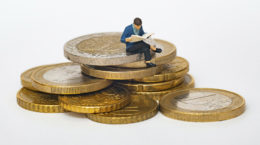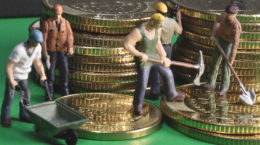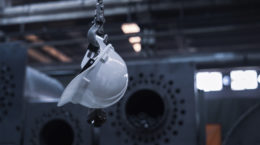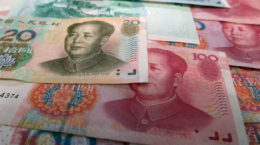Let’s speak honestly. Without hopes for 100500 billion EUR that the West will supposedly give us as soon as we get rid of Lukashenka to start a great life. Without hopes that somebody will give us the Khanty-Mansi AD when Russia collapses. Yet judging by the real state of our country and the whole region we live in.
Let’s look at the situation with a cold eye. Belarus is a country with aging population and a high percentage of pensioners, with technologically backward industries and with lands not very suitable for agriculture. Also, it is a country with a society that has negative attitude to entrepreneurship, with a sky-high share of the state in the industrial sphere, with outdated management practices and an uncritical attitude to oneself, with ruined reputation in the world.
Yes, everything is very bad. Yet, at least we won’t have to lift the country from ruins after Aliaksandr Lukashenka leaves, as the Germans had to do after the Second World War, and as the Ukrainians will have to do after the current war. We have a lot of talented and well-educated people, despite the refusal to follow the Western educational standards. We are in a close proximity to the European Union, and we also have an economically advantageous location on the crossroads of the trade routes from the North to the South and from the West to the East.
Therefore, we should carefully evaluate our strengths, study foreign experience, elaborate a plan of economic development, find our own “points of growth” and start acting. In this article we are going to outline the main approaches to the rebirth of the Belarusian economy… after the three decades of Lukashenka’s rule sink into oblivion.
Import substitution and industry development
High-ranking Belarusian officials often speak about import substitution and urge to invest in it, always aspiring for a budget financing of “import substitution projects”. So, they failed to do their job in every sphere of the economy, or they did it badly, even when they had all the opportunities to succeed, like international cooperation, open markets, money and what not, and now they have suddenly realized that something is awfully wrong. Moreover, by using the magical words “import substitution” they want to straighten out things in the sphere, which remains at the technological industrial level of the 80s of the XX century.
Nevertheless, even in current situation something could have been done, but they are making the same mistake again. In Belarus, they are trying to start from the top of technology; but it can never be done like that. Even in much more favorable conditions, we did not manage to launch production of decent light vehicles, machines, truck diesel engines, our own PCs or smartphones, or at least mid-range microchips.
Every honest economist will say that any catch-up modernization (it is what Belarus is going to do) starts with simple things. The experience of “Asian tigers” – Japan, South Korea, Taiwan, China – confirms the same. They move from simple things, like producing fabric and tailoring panties, to middle ones, like shipbuilding and producing pharmaceutical substances, before moving to the most sophisticated ones, like microelectronics. There is just no other way. A catch-up country does not have qualified personnel to deal with complicated stuff.
In addition to that, capital is needed, and in order to get it, the new Belarusian authorities will have to change drastically their attitude to investors and start protecting private property rights. Also, they will have to learn how to “grow” our own domestic investors. Nothing can happen without money: if you have only a shovel, the most you can get is a reclamation ditch.
Of course, in any way, Belarus should seek opportunities of international cooperation. While attempting to establish the process of import substitution, it should be taken into consideration that the higher you get on the technological chain, the tighter the cooperation is. For example, over 20 companies from dozens of countries around the world participate in construction of one iPhone only. Some might say, that it is manufactured in China, but the truth is, only the simplest, primitive assembly work is done there. Also, for now, Belarus can only dream about getting at least at that level.
Another example: there is no country today able to produce at least a mid-level microchip all by itself. We are speaking about something like 28-50 nanometers, for cars and home appliances. A “thick” one, over 100 nm, probably yes, with minimal cooperation, and that is attempted in Belarus today.
It has recently been detected, that we do not produce сіtric acid, absorbent coal or iodine solution by ourselves any longer. We have lost the skills of growing hops. We stopped producing simple machines for metal wares production (nails, nuts, screws, etc.) – the technology of the end of the XIX century. Of course, it is possible to buy simple technology from China, for instance, for all those processes, and start there., and then move higher and higher along the chain, gradually cultivating and educating the workforce along the way. Those who master production of a nail machine, will proceed and soon learn how to produce bearings (they are already manufactured in Belarus, but not according to the needed standards at all).
If we organize the process very well, work a lot and steel little, then in 10-15 years we will regain the status of an “assembly shop”, not of the USSR this time, but of the Eastern Europe.
Income as the basis of the economy
In Belarus, a very old, Soviet-times, “mechanistic” approach to the economy is still widely spread. Like, first we launch production, and then, thanks to the production, we start exporting, get a lot of money, the state will distribute it wisely, and the income of the population will, thus, grow. However, it does not work like that in the real world. The economic wheels are turned by completely different powers. People spend money, that money is received by the consumer business, which in its turn is financing the production and construction business, and out of that both the state revenues and the social sphere shape up.
That is, the correct goal to be set is the increase in the real income of the population. That’s an obvious KPI of every authority. Nominal income minus inflation equals real income. As we can see from that equation, there are two variables there, one of which is inflation. If it is kept in the framework of 4-5%, the half of the job is done.
However, the second, and the main, part is not possible without creating high-paying jobs. It is not possible without improving productivity and without improving the human capital – education, medicine, ecology, decrease in crime rate, and so on. At this stage, points of growth, unique for every region, should appear. For example, growing crops in Vitebsk region is low-profit, while cattle breading and forestry are highly remunerative.
The policy of corporations belonging to the state (for now) should also be subordinate to the common cause: they have to invest into the human capital and into the habitat. The government must redistribute superincomes of large companies into the growth points of the national economy and into the improvement of the environment (for their business, too).
However, at the very beginning the focus of the economy restoration should not be on large enterprises. It should be on the income of citizens. If people have money, the consumer economy will start turning and working by itself. Private business is reacting very rapidly to the growth of real incomes; then, thanks to multiplication effect, all that leads to the growth of the whole country’s economy in general.
To be continued…
Our House








